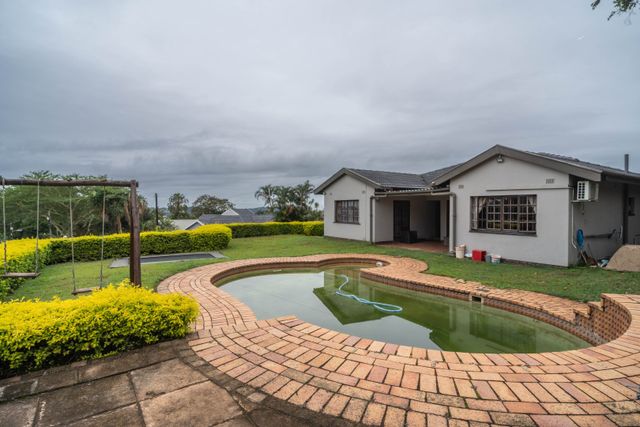The outlook for South Africa’s property market in 2018
With so much hinging on what might or might not happen in the political arena, there is much uncertainty regarding the outlook for the South African economy in 2018. While renewed confidence seemed to rally the rand after Cyril Ramaphosa’s appointment as leader of the ANC, the Steinhoff and Eskom debacles along with political in-fighting, not to mention the critical water shortages in various parts of the country, will be the key influencers on what will happen in the property market during the course of the next year.
The political and economic outlook
Our economy was under pressure during 2017, showing very little growth, and the likelihood of this improving much in the year ahead is very slim. The macro economics are not looking very good, with very high government debt continuing to grow and revenue stagnant or decreasing.
But all is not doom and gloom on the property front. On a positive note, inflation has been kept under control. Consumer debt to income ratios have dropped from the highs in 2008 of 87% to 72% in 2017, which is a good indication that consumers are starting to handle their finances more appropriately along with lending institutions taking a more cautious approach to lending.
Interest rates over the past few years have been low which has been able to sustain the property market at a steady pace and even though we saw a rise in 2017, it has not been significant enough to affect the property market in a negative way.
The rand rallied again on the January announcement that the Reserve Bank would keep interest rates at current levels, and I do not feel that there will be any drastic changes to interest rates in 2018, and at worst we could see an increase of 0.5 to 1% basis points.
The major factor affecting the property market is the political situation, which has many people waiting to see how things pan out before making decisions that could affect them financially. While the amount of building activity is nowhere near what it was 10 years ago, it must be said that in water-scarce environments this is no bad thing. The country’s water woes are not confined to the Western Cape: Limpopo has struggled with water issues for some time now, Johannesburg and Durban have had scares in recent years and the Eastern Cape is under restrictions too. Those who are building now have an opportunity to ensure their architects focus on water-saving designs and should specify water-saving fittings like aerated taps. I feel sure we will start to see buyers adding water-saving systems to their lists of non-negotiables. If you are a seller in a water-scarce region, consider retro fitting such devices to add instant value and make your property stand out from the crowd.
The property market outlook by province
Last year’s property market followed much the same path as the economy, with every little growth and, in most cases, negative growth when taking inflation into account. According to FNB, the average price growth across South Africa was 4.3%; but adjust that for inflation and property has been in decline by -0.9%. My opinion is that we will not see much change to these numbers during the course of 2018, and if we do, it will only be in the later part of 2018.
That’s good news for buyers - there are definitely opportunities out there for those who aren’t sitting on the fence waiting for the political situation to resolve itself.
Growth figures across the country have varied and in particular the Western Cape has shown higher growth than the rest of the provinces. The “semigration” trend seems to be slowing down though, and Cape Town is becoming an area that is beyond most people’s reach from a housing affordability point of view. I believe the current water crisis is having an effect on people's decisions to move to Cape Town. Another statistic from FNB shows a significant drop of buyers in the Western Cape - from 15.7% of national buyers in 2016 to 12.8% in 2017. Given the above environment, I see this downward trend continuing into 2018, which again strengthens the hand of buyers.
The sentiment of foreign buyers with regard to the Western Cape is also weakening, and I believe this is due to the political situation we find ourselves in.
With the Western Cape becoming unaffordable for many, in particular the first time-buyer, people are looking at alternatives that offer similar lifestyles along the coast such as Durban, Ballito, Port Elizabeth and George. Many people moving to these areas are either younger families or older retirees who are looking to downsize. According to FNB, 26% of property sales are due to people downsizing because of their age.
The buy-to-let-market
The buy-to-let market has remained steady for the past few years and according to FNB, these buyers have made up around 8.25% of the buyer market since 2010, which is a considerable drop off from the 25% highs in 2004. The main reason for this being the obvious tightening of the financial institutions’ criteria for lending to investors and along with this the tough economic climate and political uncertainty. The rental gross yields nationally are sitting around 7% for a freehold property and just over 9% for a sectional title property (TPN), and there are even better returns available for the prudent investor prepared to do his homework.
Rentals have followed a similar trend to the sales environment with slow rental growth across most of South Africa. While in many cases the margin is slight, rentals are still on average performing above inflation. The Western Cape is still seeing the highest rental growth rates of 10.2% (PayProp Rental Index). There is a slight downward trend, which I see continuing into 2018 to a more realistic single-digit growth rate. The only other province to stand out was Limpopo, which has seen a significant drop from a growth of 11.9% to 1.1% - this was due to mining activity in this region.
In general, the remainder of the provinces have shown an average decrease in rental growth from 7% in 2015 to 5.9% in 2017 third Quarter (all above stats PayProp Rental Index). I would see the average rental growth across the country in 2018 staying stable around the 6% mark. Investors coming into the market should take cognisance of this slow rental growth when purchasing and try and buy in areas that are showing stable growth and occupancy rates.
It is imperative that investors align themselves with a professional rental agent who can do thorough checks on their prospective tenants. According to TPN 5.54% of tenants nationally default on their rentals.
I see the year ahead continuing very much along the same path as 2017 with a slight weighting towards careful, patient buyers. In a market like this one, a Buyer’s Mandate makes a great deal of sense. The buyer gets a dedicated property professional with a wealth of experience and contacts to guide them through the search for their dream home and then through the negotiating process.
New Germany, KwaZulu Natal
New Germany is a town situated just inland from Durban in KwaZulu-Natal, South Africa. It has been incorporated firstly into Pinetown and now into eThekwini. It was established in 1848 by a party of......Read More
